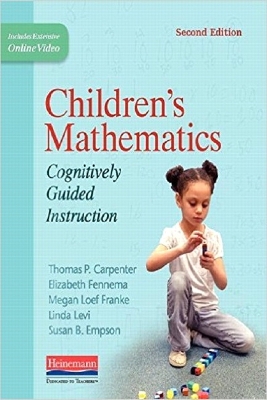
annieb123
Written on Sep 28, 2022
Children's Mathematics: Cognitively Guided Instruction is a clearly written supportive and accessible guide for facilitators and teachers to help children succeed with learning mathematical concepts with minimal frustration. Released in this edition in 2014 by Heinemann, it's 240 pages and is available in paperback format. It's unclear from the publisher's info, but the book is full of links and support videos which would be more accessible in ebook format, if it's available in electronic format. The electronic ARC provided for review contains hyperlinked table of contents and links to online resources, so if possible, I recommend at least one copy of the ebook for ease of navigation.
I've been an advocate for STE(A)M for decades. Our capacity for innovation and probably future survival are dependent on the critical reasoning skills we foster in the next generation(s). They're literally our future. When I find books which support learning styles and techniques which actually work and are logical and have practice based data to back them up, I am thrilled. This is a sensible and very accessible guide to using children's natural developmental understanding to build math skills in the classroom.
This book is aimed at professional educators although it will also be appropriate for some homeschooling/hybrid resource people. The book is based on CGI techniques (Cognitively Guided Instruction) and uses the differing ways children's cognitive development occurs to creatively support their learning styles to foster *understanding* of concepts as opposed to rote learning (which gives no firm basis to build on).
The introductory chapters explain the ways children formulate mathematical problems differently than adults, and how teachers can utilize those differences to help them succeed at problem solving. The book contains concrete techniques for tool building and retention.
The book contains the methodology and techniques for classroom practice as well as appendices containing research data and resource links.
This is a well written and practical guide to using natural psychological development to enhance students' understanding and facility with math.
Four and a half stars.
Disclosure: I received an ARC at no cost from the author/publisher for review purposes.
